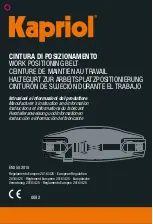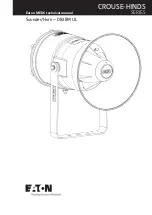
4 |
StageOne Knee Cement Spacer Molds
Surgical Technique
Figure 5
Figure 6
Femoral Technique
Select femoral mold size by using available X-ray
templates. To fill the femoral mold, place the cement
delivery nozzle tightly against the fill port on the side
of the mold and inject the cement (Figure 5). Fill mold
completely without pressurizing the full mold.
As filling nears completion, tip the mold so that the two
small vents nearest the filling port are directed upward
so that all air can escape as filling is completed.
Upon completion of filling, examine the side walls
of the femoral mold for distortion (Figure 6). Over-
filling the mold will result in a malformed spacer.
If necessary, squeeze mold so that excess cement
exits the fill port.
Two to three minutes after filling, observe the
level of cement in the femoral mold at the filling port.
If the level has dropped, inject additional cement
to compensate for the pre-cure shrinkage.


























